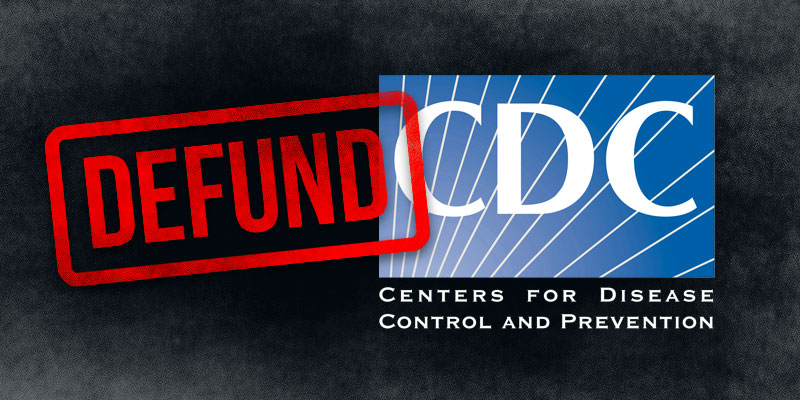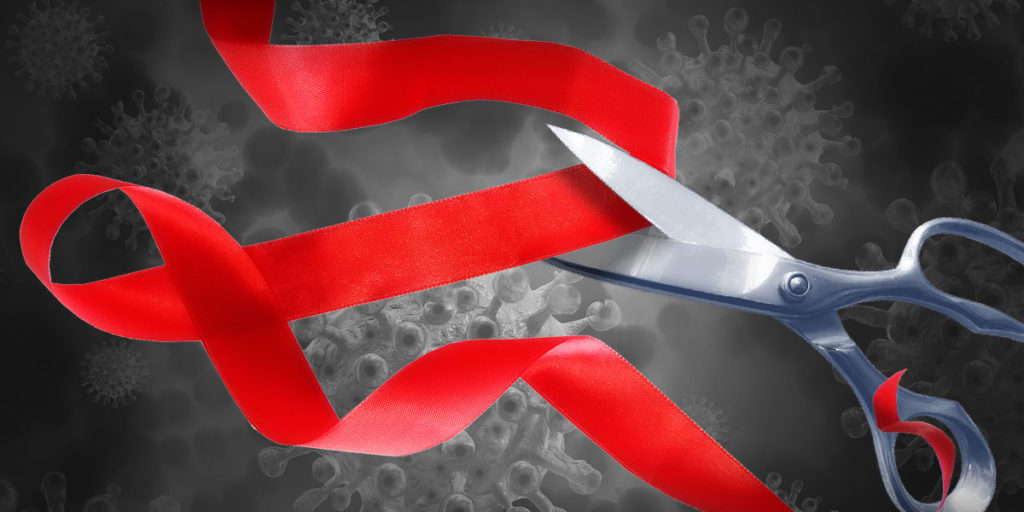The Centers for Disease Control and Prevention (CDC) have made numerous mistakes during the COVID-19 pandemic. Mission creep at the CDC has left America vulnerable to a communicable disease. We need a new agency solely dedicated to battling infectious diseases.
Let’s start with the mistakes. A lack of early testing let the outbreak spiral out of control. Some have criticized the CDC for not using a German test approved by the World Health Organization (WHO). I will give the CDC a pass here because the CDC is required to develop a test for the U.S. during pandemics. Contamination of the test kits, however, falls squarely on the CDC, a mistake resulting from a breach of basic protocols.
Another miscalculation was preparing only 200 test kits. Although each kit could test 700 specimens, this was still extremely limited capacity to contain an easily transmissible virus.
The CDC equivocated and eventually flipped its position on masks. Throughout March, the agency claimed that only the sick or persons caring for the sick should wear masks. Dr. Anthony Fauci recently confirmed that this deliberate misinformation was intended to reserve masks for health care workers but was still misinformation.
Recently, The Atlantic reported that the CDC has been combining blood and nasal test results. Blood serum antibody tests only show that a person has had COVID-19 at some point. As a result, the case reports being watched so carefully as states reopen may include older cases.
Some commentators blame the CDC’s failures on Trump administration budget cuts. Yet as the Cato Institute’s Chris Edwards demonstrated, proposed cuts were never enacted; the CDC budget has remained steady (adjusting for inflation) since 2010 with a 12% increase in employees.
The CDC has spent money and time on efforts unrelated to infectious diseases. This is the essence of “mission creep,” or an expansion of tasks beyond an agency’s core competency. Bureaucrats seek out new tasks for additional funding, and sometimes Congress orders an agency to study something. As Cato’s Mr. Edwards writes, “How is CDC Director [Dr. Robert] Redfield supposed to remain alert to emerging epidemics when he is also supposed to manage programs on tiny teeth, colon cancer, opioids, child abuse, diabetes, workers’ compensation, lead-based paints, mold in buildings, and lifting heavy objects on construction sites?”
States imposed draconian “nonpharmaceutical interventions” (NPI) to slow COVID-19. Evidence demonstrating these policies’ effectiveness was very limited. A 2019 WHO review observed, “The evidence base on the effectiveness of NPIs in community settings is limited, and the overall quality of evidence was very low for most interventions.” Furthermore, “much of the evidence base is from observational studies and computer simulations.”
The role of computer models deserves further discussion. Computer models produced the “worst-case” scenarios predicting 1.7 million to 2.2 million deaths in an unconstrained pandemic and claiming that measures like closing schools and shutting down business could avoid most of these deaths. The projections were based on assumptions, not evidence, that NPIs would reduce interactions between people.
Lockdown policies might not reduce interactions due to offsetting personal actions. For example, children not interacting at school may interact instead at parks, day care centers, or malls. Grandparents’ taking on babysitting duties could potentially increase transmissions to the elderly. Evidence from actual school closings would be required to validate assumed reductions in interactions.
Instead of researching vaping and gun violence, the CDC could have extensively examined NPIs. We did not need to take a shot in the dark with polices that cost 40 million American jobs.
Limited government not only keeps government within its proper scope, it avoids mission creep and ensures that critical tasks get done well. Governments generally underprepare for rare events like disasters and pandemics. This makes an agency focusing exclusively on communicable diseases invaluable.
After the COVID-19 pandemic is behind us, we should seriously consider replacing the CDC with an agency focused exclusively on infectious diseases. Other CDC functions (like collecting vital statistics) can be moved elsewhere within the Department of Health and Human Services. We need an approach to ensure preparedness for the next pandemic.
Daniel Sutter is the Charles G. Koch Professor of Economics with the Manuel H. Johnson Center for Political Economy at Troy University and host of Econversations on TrojanVision. The opinions expressed in this column are the author’s and do not necessarily reflect the views of Troy University.













